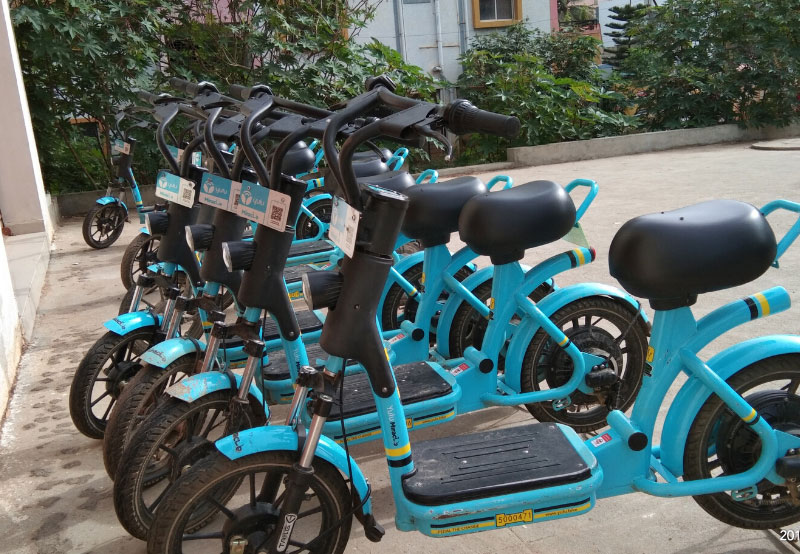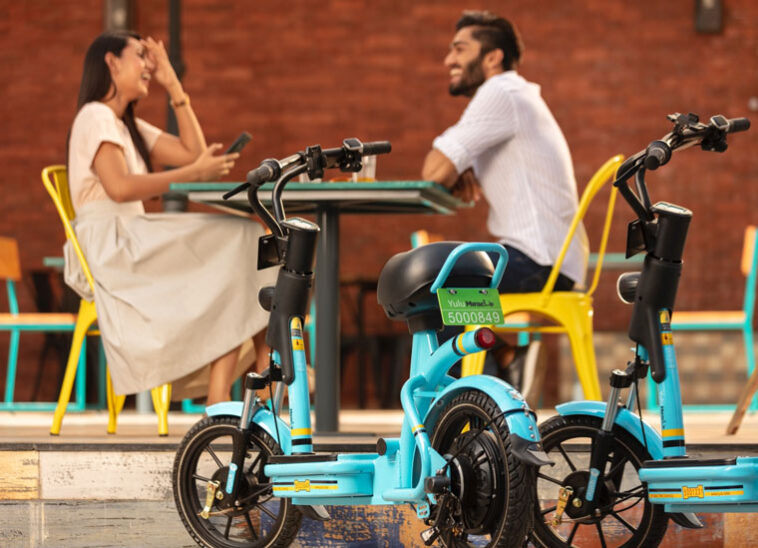Introduction
Any country’s growth is dependent on its transportation system. However, the majority of modern modes of transportation are detrimental to the environment and contribute to severe air pollution. Most Indian cities are concerned about air pollution, and 14 of the world’s 15 most polluted cities are located in India. Air pollution kills 2 million Indians prematurely each year, according to Wikipedia. Automobile emissions are one of the most significant contributors to air pollution, so switching to more environmentally friendly modes of transportation is vital.
Yulu has proposed a reasonable solution to these issues as it is a company that focuses on urban mobility, and its products are designed to be exceptionally comfortable and ergonomic, allowing for a smooth transition from regular cars. YULU has evolved into a movement that addresses the complex issue of First and Last Mile connectivity while simultaneously lowering traffic congestion and pollution.
Getting a Yulu bike is a simple process as you can unlock a Yulu bike with your phone and a sensor if you open the app near one. Registered users can unlock a bicycle by scanning the QR code on the bike and then pedaling away.
Map-making algorithms are utilized during rush hour to determine the patterns and locations of many low-supply and high-demand zones, as well as vice versa. The tech staff sits and organizes these matches in a section of the facility dominated by a giant flat-screen display. Yulu accepts Paytm, Google Pay, PhonePe, UPI, as well as credit and debit cards. Hemant shows how interfering with the dockless system for security and theft prevention causes a loud alert to sound.
About the Startup – Yulu
Yulu is a mobility platform powered by technology that enables Integrated Urban Mobility across public and private forms of transportation. To deliver seamlessly, shared, and long-term first and last-mile connectivity, Yulu employs Micro Mobility Vehicles (MMV) and a user-friendly smartphone app. The Yulu platform is straightforward, dependable, and scalable, and it can handle several bikes with a single data model. Yulu blends IoT, machine learning and artificial intelligence (AI), and cloud computing to provide a unified experience through a simple interface. Their dockless automobiles can be easily rented on a pay-per-use basis because of the deployment of IoT as the operation’s backbone. To reserve a ride, use the iOS or Android apps, and smart bikes can be unlocked using QR codes.
After operating their company with bicycles and understanding about the market’s needs, the company decided to expand into electric mobility. They saw a market void and decided to design the “Yulu Miracle,” a one-of-a-kind battery-powered, lightweight, easy-to-ride small two-wheeler. The Yulu Miracle has a top speed of 25 kmph and is exempted, which means it does not require a driver’s license or a helmet. It has enabled customers to take eco-friendly trips at reasonable prices, lowering their carbon footprint. YULU Miracle uses a swappable lithium-ion battery and has built a highly scalable charging station network.
Yulu currently imports electric scooter kits built in China and assembles them in India. Yulu forecasted that Bajaj Auto’s Chetak factory in Pune, Maharashtra, would build 100,000 Miracle bikes by 2020. In November 2019, Bajaj Auto also invested $8 million in Yulu. Currently, approximately 4000 Yulu bikes may be found on Indian roads.
Yulu can currently be found in Bangalore, Mumbai, Pune, Bhubaneswar, and Delhi. As the number of e-bikes increases, the company plans to expand to 56 cities across India in the near future. The YULU team is guided by three urban mobility guiding principles: accessibility, availability, and cost. They are enabling Indian city people to achieve a paradigm shift by making urban commutes more efficient and environmentally beneficial.
The company deals with an environmentally friendly UMaaS (Urban Mobility as a Service) solution that also serves as a cost-effective and scalable first- and last-mile commuting option. Their vehicles are built for shared micro-mobility in India, with the climate and traffic patterns of the country in mind.
Technology is Yulu’s most valuable asset, which they use to produce innovative and intelligent cars that address complex urban mobility issues. They’ve built machine learning and artificial intelligence models based on data from users and IoT devices to improve user experience and operational efficiency as a result of their focus on data-driven business.

Idea- Founders and Foundation Stone
Yulu was founded in 2017 by Amit, co-founder and former president of (OEM and Telco Solutions) at In Mobi, along with Naveen Dachuri, RK Mishra, and Hemant Gupta. Before joining Yulu as a co-founder, Naveen worked as a data architect and co-founded an Edtech firm. RK Mishra has decades of public policy experience, while Hemant co-founded a B2B commercial software venture.
The company, which has offices in Bengaluru, Pune, Mumbai, and Bhubhaneshwar, intends to leverage IoT technologies to alleviate traffic issues. When Amit was working at his former company, InMobi, he had to travel to China on a regular basis. While there, he learnt about the ups and downs of bike-sharing companies like Ofo and Mobike. It took these businesses two years to obtain market acceptance and widespread use.
Vision
Yulu now employs around 70 people full-time. They also have 160 field personnel in charge of operations on the ground. Attitude and willingness are the icebreakers for working at Yulu. They are adamant that it is senior management’s role to motivate employees to achieve exceptional results by giving them a clear goal, the tools they need, and the flexibility to execute.
Urban mobility is shifting away from vehicle ownership and toward Mobility-as-a-Service on a global scale. Urban mobility in the future will be shared and sustainable, with services that are always available, easy to obtain, and broadly priced. Micromobility’s promise extends far beyond linking people to public transit; in big cities, more than 60% of trips are less than 5 kilometers long, and Yulu is aiming for this market with eco-friendly vehicles designed for a single passenger and a sharing usage model.
The company visions to expand and progress with new technological advancements that known no bound and it would be wise to see how a startup that is innovative, performs in the future.



